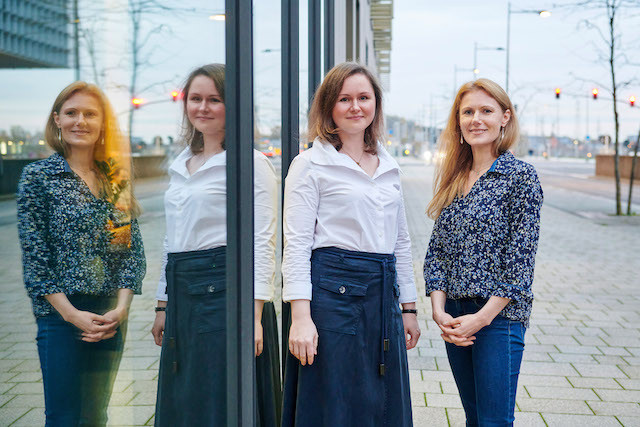“Private property structures our society, and the housing market is one of the oldest organisational structures in the world,” said project supervisor Sabine Dörry of the Luxembourg Institute of Socio-Economic Research (LISER).
And it is a lucrative business. Real estate transactions reached $1.75trn in 2018, according to the latest data available from Property Forum, while investment firm MSCI estimated the global real estate investment market to be worth $9.6trn in 2019.
Doctoral candidate Anetta Proskurovska is studying land administration and housing sales procedures in three different countries--Sweden, the UK and Luxembourg--to analyse how they could be revolutionised by blockchain.
The technology would enable more flexible forms of ownership, such as fractional property rights, where only part of a property is bought or sold. And it would allow for safe, traceable and timestamped transactions along the value chain.
“The registration of a title looks like a one-step-procedure, but the entire transfer process is long, costly, and can actually consist of more than 30 steps,” said Proskurovska. “Blockchain connects all those things together in the same space.”
Proskurovska and Dörry work together with property group Grosvenor, financial services company Deloitte and the SnT, a technology research arm at the University of Luxembourg, on different elements in the administration process.
Winners and losers
“The systems are complex and, in many cases, very inefficient,” said Proskurovska of what she has observed so far. “But you have plenty of business models that were created to deal with these inefficiencies, and if you try to change them, there will be resistance.”
Sweden’s land registry authority--the Lantmäteriet--in 2016 launched a pilot project together with banks and businesses to test the use of blockchain in real estate transactions. This included a live transaction between a buyer and a seller in 2018, but little has happened since to scale up the project.
Proskurovska is preparing to publish a more thorough analysis of why that is. Among the reasons she has identified is a fundamental change in the governance structure, such as the role of the Lantmäteriet.
“You have a government agency that today is involved only at the very end of the housing transaction. With the blockchain application, Lantmäteriet becomes a central part of it,” she said. “This would mean a profound change in the organisation of the whole Swedish real estate ecosystem.”
The research team said it had identified winners and losers in the switch to blockchain, without, however, revealing them for the moment. “Our society is organised in a specific way. All of a sudden, there is a complex set of intended and unintended consequences that we don’t really know much about,” Dörry said.
Luxembourg case study
The analysis for Luxembourg won’t begin until next year. Proskurovska is currently identifying the different actors in the local land administration ecosystem.
“In our preliminary studies, we saw that Luxembourg has not been as progressive in this field as other countries so far,” said Dörry. This despite the fact that the country launched its first public sector blockchain last year and, for example, allows for digital signature of documents, which is not the case in Sweden for real estate contracts--one of the other hurdles Proskurovska established.
The outcome of the research project--expected to come to a close in 2022--could act as a roadmap for Luxembourg to adopt blockchain in its land administration processes. This won’t only depend on acceptance from the different actors within the property market but also on trust, the researchers said.
“Trust is one of the core concepts in organisational sociology--trust in the system, individual people, organisations, the technology and so on,” said Dörry.
In an April 2020 survey--at the height of the coronavirus pandemic’s first wave--nine out of ten Luxembourg voters said they trusted the government but whether that will be a recipe for blockchain success remains to be seen. “A lot depends on the existing procedures, registration system, and the context,” Proskurovska said. “You cannot change all in one day.”
This article is the first of a five-part series dedicated to research projects in Luxembourg that will be published during the week of 7 December.
